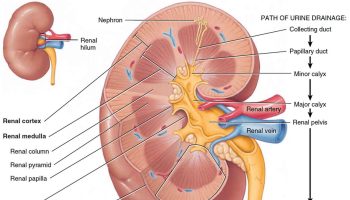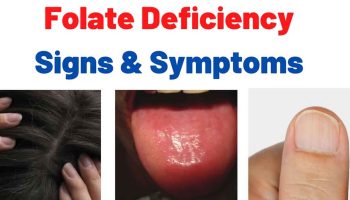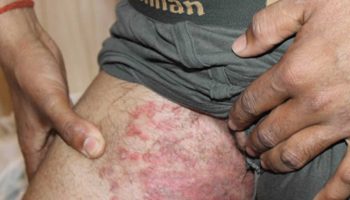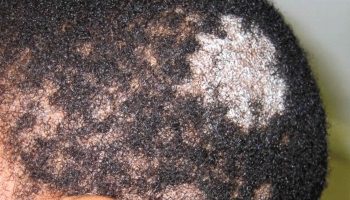Contents
What is burning mouth syndrome
Burning mouth syndrome is the medical term for ongoing (chronic) or recurrent burning pain in the mouth or in the tongue that may occur every day for months or longer usually without accompanying clinical and laboratory findings 1. Affected patients often present with multiple oral complaints, including burning, dryness and taste alterations. Burning mouth complaints are reported more often in women, especially after menopause. Typically, patients awaken without pain but note increasing symptoms through the day and into the evening.
Burning mouth syndrome discomfort may affect the tongue, gums, lips, inside of your cheeks, roof of your mouth or widespread areas of your whole mouth. The burning sensation can be severe, as if you scalded your mouth. Burning mouth syndrome can appear suddenly or develop gradually over time.
Based on the makeup of most studies published to date, oral burning appears to be most prevalent in postmenopausal women 2. It has been reported in 10 to 40 percent of women presenting for treatment of menopausal symptoms 3. These percentages are in contrast to the much lower prevalence rates for oral burning in epidemiologic studies (0.7 to 2.6 percent) 4. The reason for the gender difference between study populations (approximately 85 percent of study subjects have been women) and epidemiologic studies (which demonstrate a more equal distribution of oral burning in men and women) may be related to the definition used in each study design.
Unfortunately, burning mouth syndrome has no known obvious cause or the cause often can’t be determined. Conditions that have been reported in association with burning mouth syndrome include chronic anxiety or depression, various nutritional deficiencies, type 2 diabetes (formerly known as non–insulin-dependent diabetes) and changes in salivary function. However, these conditions have not been consistently linked with the syndrome, and their treatment has had little impact on burning mouth symptoms. Recent studies have pointed to dysfunction of several cranial nerves associated with taste sensation as a possible cause of burning mouth syndrome.
There has also been no clear consensus on the cause, pathogenesis or treatment of burning mouth syndrome 5. As a result, patients with inexplicable oral complaints are often referred from one health care professional to another without effective management. This situation not only adds to the health care burden of these complaints but also has a significant emotional impact on patients, who are sometimes suspected of imagining or exaggerating their symptoms.
Doctors and dentists do not have a specific test for burning mouth syndrome, which makes it hard to diagnose. Your doctor or dentist will rule out other conditions before diagnosing burning mouth syndrome.
No specific treatment works for all people. However, your doctor can prescribe medicine to help you manage mouth pain, dry mouth, or other symptoms.
Complications of burning mouth syndrome
Complications that burning mouth syndrome may cause or be associated with are mainly related to discomfort. They include, for example:
- Difficulty falling asleep
- Difficulty eating
- Depression
- Anxiety.
Burning mouth syndrome symptoms
The main symptom of burning mouth syndrome is pain in the mouth that is burning, scalding, or tingling. Or, the pain may happen with a feeling of numbness, which comes and goes. Other symptoms include dry mouth or altered taste in the mouth. Usually, the tongue is affected, but the pain may also be in the lips or roof of the mouth, or throughout the mouth.
In more than one half of patients with burning mouth syndrome, the onset of pain is spontaneous, with no identifiable precipitating factor. Approximately one third of patients relate time of onset to a dental procedure, recent illness or medication course (including antibiotic therapy). Regardless of the nature of pain onset, once the oral burning starts, it often persists for many years 6.
The burning sensation often occurs in more than one oral site, with the anterior two thirds of the tongue, the anterior hard palate and the mucosa of the lower lip most frequently involved 2. Facial skin is not usually affected. No correlation has been noted between the oral sites that are affected and the course of the disorder or the response to treatment.
In many patients with the burning mouth syndrome, pain is absent during the night but occurs at a mild to moderate level by middle to late morning. The burning may progressively increase throughout the day, reaching its greatest intensity by late afternoon and into early evening 6. Patients often report that the pain interferes with their ability to fall asleep. Perhaps because of sleep disturbances, constant pain, or both, patients with oral burning pain often have mood changes, including irritability, anxiety and depression 7. Earlier studies frequently minimized the pain of burning mouth syndrome, but more recent studies have reported that the pain ranges from moderate to severe and is similar in intensity to toothache pain 8.
Little information is available on the natural course of burning mouth syndrome. Spontaneous partial recovery within six to seven years after onset has been reported in up to two thirds of patients, with recovery often preceded by a change from constant to episodic burning 9. No clinical factors predicting recovery have been noted.
Most studies have found that oral burning is frequently accompanied by other symptoms, including dry mouth and altered taste 2. Alterations in taste occur in as many as two thirds of patients and often include complaints of persistent tastes (bitter, metallic, or both) or changes in the intensity of taste perception. Dysgeusic tastes accompanying oral burning are often reduced by stimulation with food 6. In contrast, application of a topical anesthetic may increase oral burning while decreasing dysgeusic tastes.
Symptoms of burning mouth syndrome may include:
- A burning or scalded sensation that most commonly affects your tongue, but may also affect your lips, gums, palate, throat or whole mouth
- A sensation of dry mouth with increased thirst
- Taste changes, such as a bitter or metallic taste
- Loss of taste
Burning mouth syndrome pain can last for months or years. Some people feel constant pain every day. For others, pain increases throughout the day. For many people, the pain is reduced when eating or drinking.
The discomfort from burning mouth syndrome typically has several different patterns. It may:
- Occur every day, with little discomfort when you wake, but become worse as the day progresses
- Start as soon as you wake up and last all day
- Come and go
Whatever pattern of mouth discomfort you have, burning mouth syndrome may last for months to years. In rare cases, symptoms may suddenly go away on their own or become less frequent. Some sensations may be temporarily relieved during eating or drinking.
Burning mouth syndrome usually doesn’t cause any noticeable physical changes to your tongue or mouth.
Burning mouth syndrome causes
Burning mouth syndrome is hard to diagnose. One reason is that people with burning mouth syndrome often don’t have a mouth problem that the doctor or dentist can see during an exam. Your dentist or doctor may refer you to a specialist. Specialists who diagnose burning mouth syndrome include dentists who specialize in oral medicine or oral surgery. Other specialists include doctors who are ear, nose, and throat specialists; gastroenterologists; dermatologists; neurologists; rheumatologists; and/or allergists.
The dentist or doctor will review your medical history and thoroughly examine your mouth. A lot of tests may be needed. Tests may include:
- Blood tests to check for certain medical problems
- Oral swab tests
- Allergy tests
- Salivary flow test
- Biopsy of tissue
- Imaging tests
Candidal infections are also purported to cause burning mouth syndrome. Although candidiasis can cause burning pain, its prevalence has not been found to be increased in patients with the disorder compared with control populations 2.
The cause of burning mouth syndrome can be classified as either primary or secondary.
Etiologic Factors
Because of a long-standing difficulty in understanding the pain of burning mouth syndrome and its complex clinical picture, a number of etiologies have been suggested. However, each of these postulated causes explains the pain in only small groups of patients. With the recently increased understanding of the role that taste damage plays in the pathogenesis of burning mouth syndrome, many of these etiologies can now be viewed as part of a larger model of disease.
Psychologic dysfunction
Personality and mood changes (especially anxiety and depression) have been consistently demonstrated in patients with burning mouth syndrome and have been used to suggest that the disorder is a psychogenic problem 10. However, psychologic dysfunction is common in patients with chronic pain and may be the result of the pain rather than its cause.
The reported success of biobehavioral techniques in the treatment of burning mouth syndrome may be related more to an improvement in pain-coping strategies than to a “cure” of the disorder 11. Similarly, the usefulness of tricyclic antidepressants and some benzodiazepines may be more closely related to their analgesic and anticonvulsant properties, and to the possible effect of benzodiazepines on taste-pain pathways 12.
Systemic and Local Factors
Although burning mouth syndrome has not been linked to any specific medical condition, associations with a wide variety of concurrent health conditions and chronic pain conditions, including headaches and pain in other locations, have been documented. Patients with burning mouth syndrome often have high blood glucose levels, but no consistent or causal relationship has been documented 13. Nutritional deficiencies (vitamins B1, B2 and B6, zinc, etc.) are other findings that are not consistently supported by the literature 2.
Despite reports suggesting a significant relationship between burning mouth syndrome and mucosal ulcerative or erosive lesions, periodontitis and geographic tongue 14, most studies have reported no significant changes in intraoral soft or hard tissues 8. Similarly, chemical irritation and allergic reactions to dental materials and galvanic currents between dissimilar metals have not been found to be important causes of burning mouth syndrome 14.
Hormonal changes
Hormonal changes are still considered to be important factors in burning mouth syndrome 2, although there is little convincing evidence of the efficacy of hormone replacement therapy in postmenopausal women with the disorder 15. Approximately 90 percent of the women in studies of the syndrome have been postmenopausal, with the greatest frequency of onset reported from three years before to 12 years after menopause 6.
Dry mouth
It is not surprising that dry mouth has been suggested as an etiologic factor, in view of the higher incidence of this problem in patients with burning mouth syndrome 6. However, most salivary flow rate studies in affected patients have shown no decrease in unstimulated or stimulated salivary flow.5 Studies have demonstrated alterations in various salivary components, such as mucin, IgA, phosphates, pH and electrical resistance 2. The relationship of these changes in salivary composition to burning mouth syndrome is unknown, but the changes may result from altered sympathetic output related to stress,6 or from alterations in interactions between the cranial nerves serving taste and pain sensation 16.
Taste function
The role of taste in burning mouth syndrome is not straightforward, although recent studies by one set of investigators19 demonstrated a possible relationship between taste activity and the disorder. There is an increased prevalence of so-called “supertasters” (persons with enhanced abilities to detect taste) among patients with burning mouth syndrome.
Supertasters would be more likely to be affected by burning pain syndrome because of their higher density of taste buds, each of which is surrounded by a basket-like collection of the pain neurons of the trigeminal nerve (cranial nerve V) 17. This model would also explain the lack of effect of hormone replacement therapy once neural damage has already occurred.
Other investigations have found that the ability to detect bitter taste decreases at the time of menopause 18. This reduction in bitter taste at the chorda tympani branch of the facial nerve (cranial nerve VII) results in intensification of taste sensations from the area innervated by the glossopharyngeal nerve (cranial nerve IX) and the production of taste phantoms 19. It has been suggested that damage to taste might also be associated with loss of central inhibition of trigeminal-nerve afferent pain fibers, which can lead to oral burning symptoms 20.
Medications that cause burning mouth syndrome
Case reports have linked burning mouth symptoms to the use of angiotensin-converting enzyme (ACE) inhibitors 21, 22, 23. Once these medications were reduced or discontinued, oral burning was found to remit within several weeks. Interestingly, loss of taste sensation has also been reported with the use of angiotensin-converting enzyme (ACE) inhibitors 21.
Primary burning mouth syndrome
If tests do not reveal an underlying medical problem, the diagnosis is primary burning mouth syndrome. Experts believe that primary burning mouth syndrome is caused by damage to taste and sensory nerves of the peripheral or central nervous system that control pain and taste.
Secondary burning mouth syndrome
Sometimes burning mouth syndrome is caused by certain medical conditions. In these cases, it’s called secondary burning mouth syndrome.
Underlying problems that may be linked to secondary burning mouth syndrome include:
- Hormonal changes (such as from diabetes or thyroid problem)
- Allergies to dental products, dental materials (usually metals), or foods, food flavorings, other food additives, fragrances, dyes
- Dry mouth (xerostomia), which can be caused by certain disorders (such as Sjögren’s syndrome) and treatments (such as certain drugs and radiation therapy)
- Certain medications, particularly high blood pressure medications
- Nutritional deficiencies (such as a low level of vitamin B or iron). Nutritional deficiencies, such as a lack of iron, zinc, folate (vitamin B-9), thiamin (vitamin B-1), riboflavin (vitamin B-2), pyridoxine (vitamin B-6) and cobalamin (vitamin B-12)
- Infection in the mouth, such as a yeast infection (oral thrush), an inflammatory condition called oral lichen planus or a condition called geographic tongue that gives the tongue a map-like appearance.
- Acid reflux of stomach acid (gastroesophageal reflux disease or GERD) that enters your mouth from your stomach
- Dentures, especially if they don’t fit well, which can place stress on some muscles and tissues of your mouth, or if they contain materials that irritate mouth tissues
- Oral habits, such as tongue thrusting, biting the tip of the tongue and teeth grinding (bruxism)
- Endocrine disorders, such as diabetes or underactive thyroid (hypothyroidism)
- Excessive mouth irritation, which may result from overbrushing your tongue, using abrasive toothpastes, overusing mouthwashes or having too many acidic drinks
- Psychological factors, such as anxiety, depression or stress
Treating the medical problem will cure the secondary burning mouth syndrome.
Risk factors for burning mouth syndrome
Burning mouth syndrome is uncommon. However, your risk may be greater if:
- You’re a woman
- You’re postmenopausal
- You’re over the age of 50
Burning mouth syndrome usually begins spontaneously, with no known triggering factor. However, certain factors may increase your risk of developing burning mouth syndrome, including:
- Recent illness
- Previous dental procedures
- Wearing dentures
- Allergic reactions to food
- Medications
- Traumatic life events
- Stress
- Anxiety
- Depression
Table 1. Possible Causes and Management of Burning Mouth Symptoms
| Condition | Characteristic pattern | Management |
|---|---|---|
Mucosal disease (e.g., lichen planus, candidiasis) | Variable pattern Sensitivity with eating | Establish diagnosis and treat mucosal condition. |
Menopause | Onset associated with climacteric symptoms | Hormone replacement therapy (if otherwise indicated) |
Nutritional deficiency (e.g., vitamins B1, B2 or B6, zinc, others) | More than one oral site usually affected Possibly, mucosal changes | Oral supplementation |
Dry mouth (e.g., in Sjögren’s syndrome or subsequent to chemotherapy or radiation therapy); altered salivary content | Alteration of taste Sensitivity with eating | High fluid intake Sialagogue |
Cranial nerve injury | Variable pattern Usually bilateral Decreased discomfort with eating | Central pain control: benzodiazepine, tricyclic antidepressant, gabapentin (Neurontin) Local desensitization: topical capsaicin |
Medication effect | Onset related to time of prescription | If possible, change medication. |
Prevention of burning mouth syndrome
There’s no known way to prevent burning mouth syndrome. But by avoiding tobacco, acidic foods, spicy foods and carbonated beverages, and excessive stress, you may be able to reduce the discomfort from burning mouth syndrome or prevent your discomfort from getting worse.
Burning mouth syndrome diagnosis
There’s no one test that can determine if you have burning mouth syndrome. Instead, your doctor or dentist will try to rule out other problems before diagnosing burning mouth syndrome.
Your doctor or dentist will review your medical history and medications, examine your mouth, and ask you to describe your symptoms, oral habits and oral care routine. In addition, your doctor will likely perform a general medical exam, looking for signs of other conditions.
You may have some of the following tests:
- Blood tests. Blood tests can check your complete blood count, glucose level, thyroid function, nutritional factors and immune functioning, all of which may provide clues about the source of your mouth discomfort.
- Oral cultures or biopsies. Taking and analyzing samples from your mouth can determine whether you have a fungal, bacterial or viral infection.
- Allergy tests. Your doctor may suggest allergy testing to see if you may be allergic to certain foods, additives or even substances in dentures.
- Salivary measurements. With burning mouth syndrome, you may feel that you have a dry mouth. Salivary tests can confirm whether you have a reduced salivary flow.
- Gastric reflux tests. These tests can determine if you have GERD (gastroesophageal reflux disease).
- Imaging. Your doctor may recommend an MRI, CT scan or other imaging tests to check for other health problems.
- Temporarily stopping medication. If you take medications that may contribute to mouth discomfort, your doctor may suggest temporarily stopping them, if possible, to see if your discomfort goes away. Don’t try this on your own, because it can be dangerous to stop some medications.
- Psychological questionnaires. You may be asked to fill out questionnaires that can help determine if you have symptoms of depression, anxiety or other mental health conditions.
Burning mouth syndrome treatment
Your doctor will help you get relief. Medicine can help control pain and relieve dry mouth.
Because burning mouth syndrome is a complex pain disorder, the treatment that works for one person may not work for another.
Symptoms of secondary burning mouth syndrome go away when the underlying medical condition, such as diabetes or yeast infection, is treated. Replacing poorly fitting dentures or taking supplements for a vitamin deficiency may relieve your discomfort. If a drug is causing secondary burning mouth syndrome, then your doctor may switch you to a new medicine. That’s why it’s important to try to pinpoint the cause. Once any underlying causes are treated, your burning mouth syndrome symptoms should get better.
There’s no known cure for primary burning mouth syndrome and no one sure way to treat it. Solid research on the most effective methods is lacking. Treatment depends on your particular symptoms and is aimed at controlling them. You may need to try several treatment methods before finding one or a combination that helps reduce your mouth discomfort.
Treatment options may include:
- Saliva replacement products
- Specific oral rinses or lidocaine
- Capsaicin, a pain reliever that comes from chili peppers
- An anticonvulsant medication called clonazepam (Klonopin)
- Certain antidepressants
- Medications that block nerve pain
- Cognitive behavioral therapy (CBT)
The treatment of burning mouth syndrome is usually directed at its symptoms and is the same as the medical management of other neuropathic pain conditions (see Table 2). Studies generally support the use of low dosages of clonazepam (Klonopin) 25, chlordiazepoxide (Librium) 26 and tricyclic antidepressants (e.g., amitriptyline [Elavil]) 27. Evidence also supports the utility of a low dosage of gabapentin (Neurontin) 28. Studies have not shown any benefit from treatment with selective serotonin reuptake inhibitors or other serotoninergic antidepressants e.g. trazodone [Desyrel] 29.
Although benzodiazepines might exert their effect on oral burning by acting as a sedative-hypnotic, this possibility appears to be unlikely because the maximal effect of clonazepam is usually observed at lower dosages 30. The beneficial effects of tricyclic antidepressants in decreasing chronic pain indicate that, in low dosages, these agents may act as analgesics 31.
Topical capsaicin has been used as a desensitizing agent in patients with burning mouth syndrome 32. However, capsaicin may not be palatable or useful in many patients.
Table 2. Medical Management of Burning Mouth Syndrome
| Medications | Examples of specific agents | Common dosage range* | Prescription |
|---|---|---|---|
Tricyclic antidepressants | Amitriptyline (Elavil) | 10 to 150 mg per day | 10 mg at bedtime; increase dosage by 10 mg every 4 to 7 days until oral burning is relieved or side effects occur |
Nortriptyline (Pamelor) | |||
Benzodiazepins | Clonazepam (Klonopin) | 0.25 to 2 mg per day | 0.25 mg at bedtime; increase dosage by 0.25 mg every 4 to 7 days until oral burning is relieved or side effects occur; as dosage increases, medication is taken as full dose or in three divided doses |
Chlordiazepoxide (Librium) | 10 to 30 mg per day | 5 mg at bedtime; increase dosage by 5 mg every 4 to 7 days until oral burning is relieved or side effects occur; as dosage increases, medication is taken in three divided doses | |
Anticonvulsants | Gabapentin (Neurontin) | 300 to 1,600 mg per day | 100 mg at bedtime; increase dosage by 100 mg every 4 to 7 days until oral burning is relieved or side effects occur; as dosage increases, medication is taken in three divided doses |
Capsaicin | Hot pepper and water | Variable (see next column) | Rinse mouth with 1 teaspoon of a 1:2 dilution (or higher) of hot pepper and water; increase strength of capsaicin as tolerated to a maximum of 1:1 dilution. |
*—Burning mouth pain usually responds to dosages in the lower part of the given ranges. Some patients empirically appear to respond better to low-dose combinations of the medications in this table.
Burning mouth syndrome home remedies
In addition to medical treatment and prescription medications, these self-help measures may reduce your symptoms and your mouth discomfort.
- To help ease the pain of burning mouth syndrome, drink plenty of fluids to help ease the feeling of dry mouth or suck on ice chips sip a cold beverage or chew sugarless gum.
- Try different mild or flavor-free brands of toothpaste, such as one for sensitive teeth or one without mint or cinnamon.
- Take steps to reduce stress.
Avoid irritating substances, such as:
- Tobacco or tobacco products
- Hot, spicy foods
- Acidic foods and liquids, such as tomatoes, orange juice, carbonated beverages and coffee
- Alcoholic beverages and products with alcohol, as they may irritate the lining of your mouth
- Mouthwashes that contain alcohol
- Products with cinnamon or mint
- Products high in acid, such as citrus fruits and juices
Ask your dentist and doctor for other helpful tips.
Burning mouth syndrome can be uncomfortable and frustrating. It can reduce your quality of life if you don’t take steps to stay positive and hopeful.
Consider some of these techniques to help cope with the chronic discomfort of burning mouth syndrome:
- Practice relaxation exercises, such as yoga
- Engage in pleasurable activities, such as physical activities or hobbies, especially when you feel anxious
- Try to stay socially active by connecting with understanding family and friends
- Join a chronic pain support group.
- Merskey H, Bogduk N, eds. Classification of chronic pain: descriptions of chronic pain syndromes and definitions of pain terms/prepared by the Task Force on Taxonomy of the International Association for the Study of Pain. 2d ed. Seattle: IASP, 1994:742.[↩]
- Ship JA, Grushka M, Lipton JA, Mott AE, Sessle BJ, Dionne RA. Burning mouth syndrome: an update. J Am Dent Assoc. 1995;126:842–53.[↩][↩][↩][↩][↩][↩][↩]
- Ben Aryeh H, Gottlieb I, Ish-Shalom S, David A, Szargel H, Laufer D. Oral complaints related to menopause. Maturitas. 1996;24:185–9.[↩]
- Klausner JJ. Epidemiology of chronic facial pain: diagnostic usefulness in patient care. J Am Dent Assoc. 1994;125:1604–11.[↩]
- Zakrzewska JM. The burning mouth syndrome remains an enigma [Editorial]. Pain. 1995;62:253–7.[↩]
- Grushka M. Clinical features of burning mouth syndrome. Oral Surg Oral Med Oral Pathol. 1987;63:30–6.[↩][↩][↩][↩][↩]
- Grinspan D, Fernandez Blanco G, Allevato MA, Stengel FM. Burning mouth syndrome. Int J Dermatol. 1995;34:483–7.[↩]
- Svensson P, Kaaber S. General health factors and denture function in patients with burning mouth syndrome and matched control subjects. J Oral Rehabil. 1995;22:887–95.[↩][↩]
- Gilpin SF. Glossodynia. JAMA. 1936;106:1722–4.[↩]
- Grushka M, Kawalec J, Epstein JB. Burning mouth syndrome: evolving concepts. Oral Maxillofac Surg Clin North Am. 2000;12:287–95.[↩]
- Rojo L, Silvestre FJ, Bagan JV, De Vicente T. Psychiatric morbidity in burning mouth syndrome. Psychiatric interview versus depression and anxiety scales. Oral Surg Oral Med Oral Pathol. 1993;75:308–11.[↩]
- Levy LM, Henkin RI. Human taste phantoms can be related to specific regional areas of decreased brain γ-aminobutyric acid (GABA) by magnetic resonance spectroscopy (MRS) [Abstract]. Paper presented at Biomedicine ’98. Medical Research from Bench to Bedside. Washington, D.C., May 1–3, 1998. J Investig Med. 1998;46:219A.[↩]
- Basker RM, Sturdee DW, Davenport JC. Patients with burning mouths. A clinical investigation of causative factors, including the climacteric and diabetes. Br Dent J. 1978;145:9–16.[↩]
- American Dental Association status report on the occurrence of galvanic corrosion in the mouth and its potential effects. Council on Dental Materials, Instruments, and Equipment. J Am Dent Assoc. 1987;115:783–7.[↩][↩]
- Forabosco A, Criscuolo M, Coukos G, Uccelli E, Weinstein R, Spinato S, et al. Efficacy of hormone replacement therapy in postmenopausal women with oral discomfort. Oral Surg Oral Med Oral Pathol. 1992;73:570–4.[↩]
- Bartoshuk LM, Duffy VB, Miller IJ. PTC/PROP tasting: anatomy, psychophysics, and sex effects. Physiol Behav. 1994;56:1165–71.[Published erratum appears in Physiol Behav 1995;58:203][↩]
- Whitehead MC, Beeman CS, Kinsella BA. Distribution of taste and general sensory nerve endings in fungiform papillae of the hamster. Am J Anat. 1985;173:185–201.[↩]
- Lucchina LA, Duffy VB. Spatial taste loss associated with aging [Abstract]. Chem Senses. 1996,21:636.[↩]
- Yanagisawa L, Bartoshuk LM, Catalanotto FA, Karrer TA, Kveton JF. Anesthesia of the chorda tympani nerve and taste phantoms. Physiol Behav. 1998;63:329–35.[↩]
- Bartoshuk LM, Grushka M, Duffy VB, Fast L, Lucchina L, Prutkin J, et al. Burning mouth syndrome: damage to CN VII and pain phantoms in CN V [Abstract]. Chem Senses. 1999;24:609.[↩]
- Drucker CR, Johnson TM. Captopril glossopyrosis [Letter]. Arch Dermatol. 1989;125:1437–8.[↩][↩]
- Brown R, Krakow AM, Douglas T, Chokki SK. ‘Scalded mouth syndrome’ caused by angiotensin converting enzyme inhibitors. Oral Surg Oral Med Oral Pathol Oral Radiol Endod. 1997;83:665–7.[↩]
- Savino LB, Haushalter NM. Lisinopril-induced ‘scalded mouth syndrome’. Ann Pharmacother. 1992;26:1381–2.[↩]
- Burning Mouth Syndrome. Am Fam Physician. 2002 Feb 15;65(4):615-621. https://www.aafp.org/afp/2002/0215/p615.html[↩][↩]
- Woda A, Navez ML, Picard P, Gremeau C, Pichard-Leandri E. A possible therapeutic solution for stomatodynia (burning mouth syndrome). J Orofac Pain. 1998;12:272–8.[↩]
- Gorsky M, Silverman S, Chinn H. Clinical characteristics and management outcome in the burning mouth syndrome. An open study of 130 patients. Oral Surg Oral Med Oral Pathol. 1991;72:192–5.[↩]
- Sharav Y, Singer E, Schmidt E, Dionne RA, Dubner R. The analgesic effect of amitriptyline on chronic facial pain. Pain. 1987;31:199–209.[↩]
- Grushka M, Bartoshuk LM. Burning mouth syndrome and oral dysesthesias. Can J Diagnos. 2000;June:99–109.[↩]
- Tammiala-Salonen T, Forssell H. Trazodone in burning mouth pain: a placebo-controlled, double-blind study. J Orofac Pain. 1999;13:83–8.[↩]
- Grushka M, Epstein J, Mott A. An open-label, dose escalation pilot study of the effect of clonazepam in burning mouth syndrome. Oral Surg Oral Med Oral Pathol Oral Radiol Endod. 1998;86:557–61.[↩]
- Katzung BG, Trevor AJ. Pharmacology: examination & board review. 4th ed. Norwalk, Conn.: Appleton & Lange, 1995:214–8.[↩]
- Epstein JB, Marcoe JH. Topical application of capsaicin for treatment of oral neuropathic pain and trigeminal neuralgia. Oral Surg Oral Med Oral Pathol. 1994;77:135–40.[↩]





